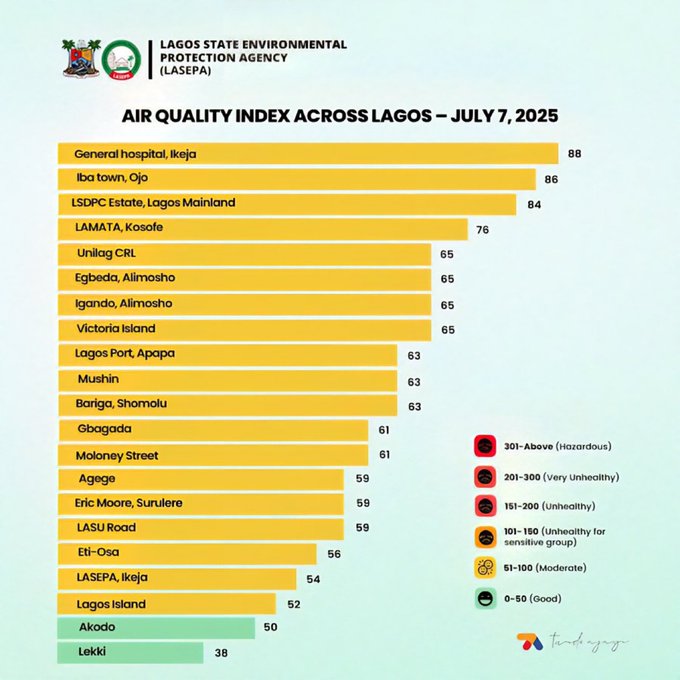The Lagos State Government has published its July 2025 Air Quality Report, offering residents a detailed snapshot of pollution levels across the state’s major districts. The report, compiled using data from sensors.AFRICA and Nigerian Meteorological Agency (NiMet) stations, highlights both improvements and areas of concern in the city’s ongoing battle with air pollution.
Key Findings:
- Overall AQI (Air Quality Index): Moderate (AQI 54) — safe for most, but sensitive groups should take precautions
- Cleanest Areas: Lekki Phase 1, Ikoyi, Epe — AQI between 50–55
- Most Polluted Zones: Apapa, Mushin, Agege — AQI above 70, due to industrial emissions and traffic congestion
Pollutant Breakdown:
| Pollutant | Level | Status |
|---|---|---|
| PM2.5 | 11 µg/m³ | Good |
| PM10 | 25 µg/m³ | Moderate |
| Carbon Monoxide | 348 ppb | Moderate |
| Nitrogen Dioxide | 9 ppb | Good |
| Ozone | 13 ppb | Good |
Health Advisory:
- Sensitive groups (asthmatics, elderly, children): Limit prolonged outdoor activity in high-traffic areas
- General public: Safe to engage in outdoor activities, but avoid peak traffic hours in industrial zones
How to Check Your Area:
Residents can view real-time air quality data by visiting platforms like IQAir’s Lagos dashboard or AQI.in’s Lagos tracker, which provide neighborhood-level insights and health tips.
As Lagos continues to urbanize, the government urges citizens to adopt eco-friendly habits—like reducing generator use, carpooling, and planting trees—to help improve the city’s air quality.
